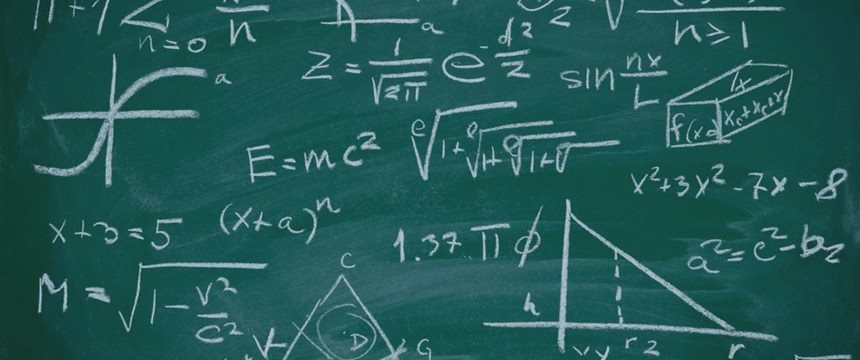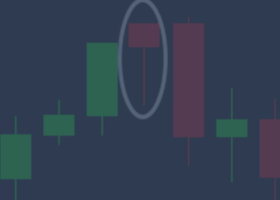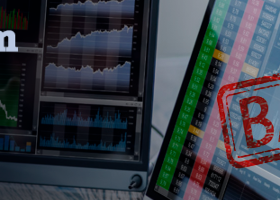Quantitative Trading involves the use of computer algorithms and programs based on simple or complex mathematical models to identify and capitalize on available trading opportunities. At the back end, quant trading also involves research work on historical data with an aim to identify profit opportunities. Quant trading is widely used at individual and institutional levels for high frequency, algorithmic, arbitrage and automated trading.
Traders involved in such quantitative analysis and related trading activities are commonly known as quants or quant traders. How Has Quantitative Trading evolved? Earlier, markets were physical and floor-based, where traders and marketmakers interacted, agreed on a security, price and quantity and settled the trade on paper. Among other qualifications, a loud clear voice and a good strong build were considered an asset for trading job aspirants as it made them impressive on the trading floor. As markets became digital with global reach and expansion, the floors emptied out.
Traders who had little to offer but a loud voice began to vanish, making way for the computer-savvy techies. Electronic markets offered vast expansion, loads of trading data, new assets and securities, and there came the opportunity for data mining, research, analysis and automated trading systems. In the last two decades, MBAs and Ph.D. holders in finance, computer science and even neural networks are taking traders' jobs at reputed trading institutions.
The profile of a quant trader: A quant trader may work for a small, mid or large size trading firm for a handsome salary with high bonus payouts based on the generated trading profits. Employers include trading desks of global investment banks/ hedge funds/ arbitrage trading firms to small sized local trading firms. Today, getting a trader’s job at established firms often requires a specialized master’s degree in a quantitative stream (MBA, Ph.D., CFA), unless one is a seasoned trader with proven work experience.
Other less experienced younger quants can start at small sized firms, or start as junior analysts and work their way up over long period, although it is a fiercely competitive field. A few others with entrepreneurial attitude develop and run their own trading systems on proprietary basis. Irrespective of whether they work for a financial firm or for themselves, quants usually have:
- expertise with computer usage
- hands-on knowledge of one or more programming languages
- familiarity with building and customizing trading systems and automation possibilities
- familiarity with data feeds and usage
- data mining, research and analytical abilities
- risk taking abilities and trader’s temperament
- an innovative mindset to continuously discover new strategies and opportunities
Infrastructure requirements for quant trader:
- Systems for accessing market data, like the Bloomberg data terminal, having the necessary technical and quantitative analysis tools available that fit into their stream of trading (like Bollinger bands, charts, etc.)
- Computer systems with programming language compatibility
- Perl, C++, Java, Python are the common ones among the trader community
- Historical and/or real-time data availability, to backtest their identified strategies
- Automated access to brokerage/trading accounts usually through Direct Market Access
Using the above, a quant trader typical performs the following activities:
- Identify a trading strategy: It can be based on simple price
-volume numbers, or on complex mathematical model
- Develop and build the working algorithm/program/system based on the trading strategy
- Backtest the prototype to verify practical implementation, and required customization: Once identified, it is very important to backtest the strategy on historical/live test data to assess practical feasibility. Further changes are incorporated as needed
- Include risk management criteria: perform scenario analysis, implement stop-loss mechanisms, capital allocation limits, etc. to make the system as protective as possible
- Implement the system on live feeds for trade execution in the open market: Let the quantitative setup go live, and continued observation on profit making potential.
Further customization for identified enhancements or failures, if any - Continued efforts on identifying new strategies - Additionally, works in the background within the research department, and provides trading tips to the traders in trading department A quant trader’s job is a continuous and rigorous process with lengthy working hours.
Present day trading seems to have become a computer vs. computer market, where a human trader’s contributions are limited to building computer programs smart enough to trade better than those developed by counterparts. The more automation built in the overall market, the more efficiency is needed as profit opportunities thin out with every passing day.
The Bottom Line A quant trader’s job and associated perks appear very lucrative, but the ones qualifying for this highly competitive field need multifaceted skills, knowledge and temperament. Quantitative traders usually have a moderate success rate, and many diversify or move out to other streams after an few years due to burnout. Apart from all the necessary infrastructure, skills and knowledge, one needs to have the right mindset to be successful as a quant.



